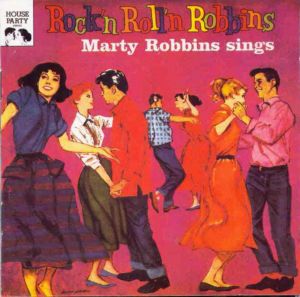
- Format: FLAC

Dec 7, 1954-Jul 21, 1963
When rockabilly reared its ugly head in country music circles back in the mid-'50s, hillbilly artists generally took one of two approaches to it: ignore it or take a stab at it. One country singer who decided to test these uncharted waters was Marty Robbins, and as this 12-song package clearly shows, he was well-equipped to take on the new sound. This compilation combines the original cover and the half-dozen songs that comprised a 10" vinyl album issued in the 1950s, with six more tracks (five of which were Columbia singles) released during the same time period. While the accent is on the "billy" side of the rockabilly equation along with Music City's attempt to tame the style down for an audience more accustomed to Grandpa Jones than Gene Vincent, this is very credible music, indeed. Rather than just covering the hits of the day (he was the first to cover Elvis' "That's All Right"), Robbins also contributed solid self-penned ditties like "Tennessee Toddy," "Respectfully Miss Brooks," and "Mean Mama Blues," although his best-known rocking effort, "Sugaree," is curiously missing from this collection. That a ballad singer whose sobriquet was Mister Teardrop could jump into this music so wholeheartedly is one of the more interesting footnotes to this confusing period in country music's history.